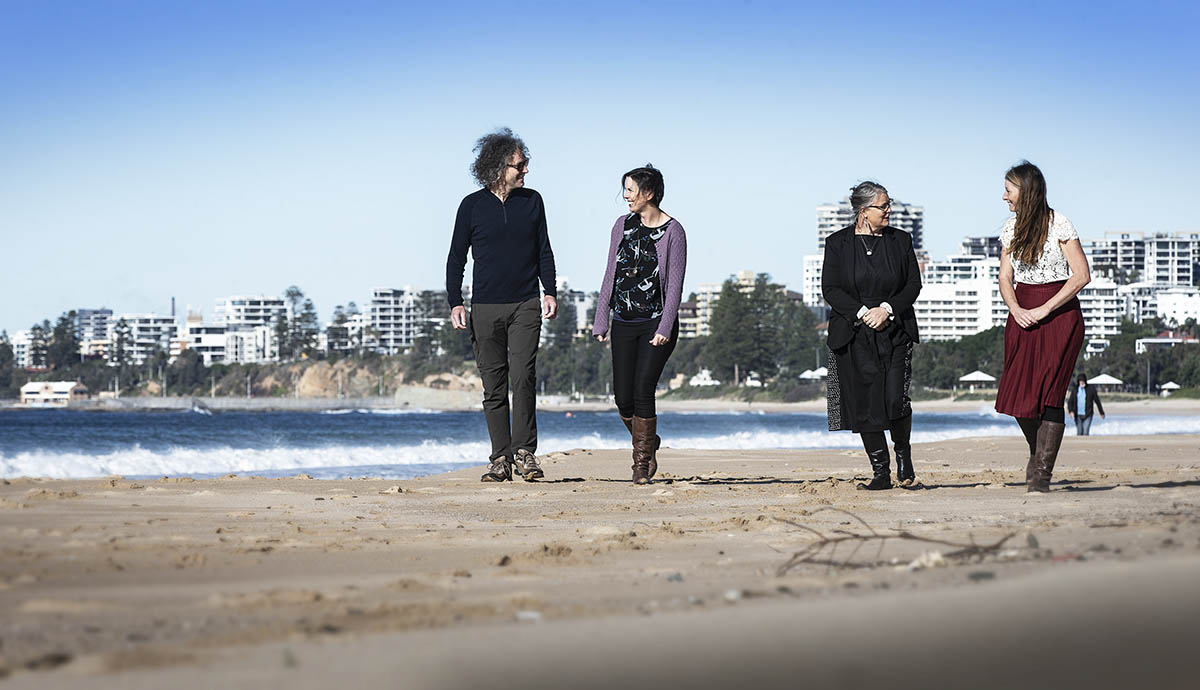June 6, 2019
South Coast communities invited to road test the ‘blue economy’
Sustainable development model for marine industries launched for World Oceans Day
Communities along the New South Wales South Coast are invited to get involved in a University of Wollongong (UOW) project to road test the effectiveness of the “blue economy” model in the region.
The blue economy model is built around the principles of “triple bottom line” decision making. This approach requires consideration of social, economic and environmental factors in an integrated way. The model aims to maximise the social and economic benefits that communities derive from the oceans, while protecting important ecosystems and minimising environmental impact.
Launching a blue economy: Putting theory into practice brings together more than 20 academics from across all UOW faculties under the Global Challenges Program to explore how to establish a blue economy on the South Coast.
The researchers will take stock of the marine industries that exist in the region, the challenges they face, what opportunities exist, and where the region has a competitive advantage.
Project leader Dr Michelle Voyer, a Research Fellow at the Australian National Centre for Ocean Resources and Security (ANCORS), says the interdisciplinary, University-wide project will road test the effectiveness of the blue economy model through an applied case study on the South Coast.
“We are exploring the concept of establishing a blue economy here on the South Coast from a variety of angles and we are urging the community to get involved,” Dr Voyer said.
Ahead of United Nation’s World Oceans Day on 8 June, the research team has launched an interactive online story map that aims to introduce the public to the idea of a blue economy and to build a vision for a “blue future” for the region.
Users can scroll down a map of the South Coast, from the Illawarra to the Victorian border, and see stories of how the coastline has been used in the past, what role marine and coastal industries play in the regional economy, and what the future might hold for them.
Members of the public can also contribute their own ideas about which marine industries they would like to see grow and develop in the future through a crowdsourced mapping page.
“We want to uncover the attitudes and connections people hold towards the coastline and ocean, and how they use the coast and ocean in their daily lives,” Dr Voyer said.
“By understanding the way people connect with and value the oceans we can begin to understand the type of futures they would like to see for their coastal environments.
“By exploring the concept of blue economies and testing it here on the South Coast of NSW the research aims to change the way the world uses its oceans to improve the lives of those dependent on it.”
Members of the public are encouraged to use the interactive map to identify opportunities they would like to see developed in their region. They can also sign up to an email list if they wish to keep in touch with the project as it develops.
The program is already looking towards future projects, including what opportunities might exist for Indigenous communities in the blue economy, especially in fisheries and aquaculture. An important objective of the project is to explore new business models and ideas that support Indigenous communities through employment while maintaining their cultural connections and practices.
“In the long term, by applying this model to other regions reliant on the ocean, such as the Pacific Islands, there is the chance that the lives of millions of people could be improved as well as the health of our beautiful ocean resource,” Dr Voyer said.
Photo caption: Launching a blue economy researchers (left to right) Dr Hugh Forehead, SMART Infrastructure Facility; Dr Michelle Voyer, Australian National Centre for Ocean Resources and Security (ANCORS); Dr Sue Ballard, School of the Arts, English and Media; and Ms Lana Kajlich, ANCORS. Picture: Paul Jones, UOW
